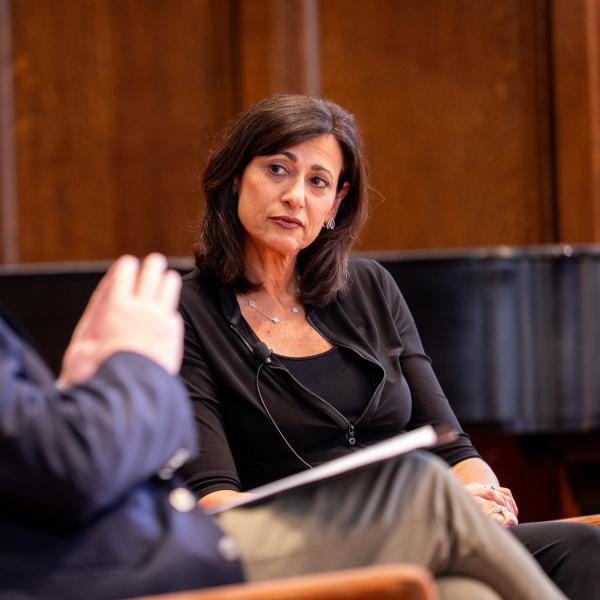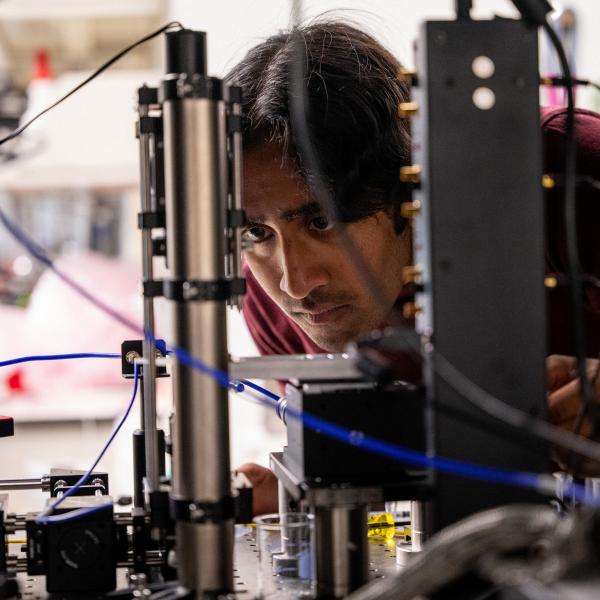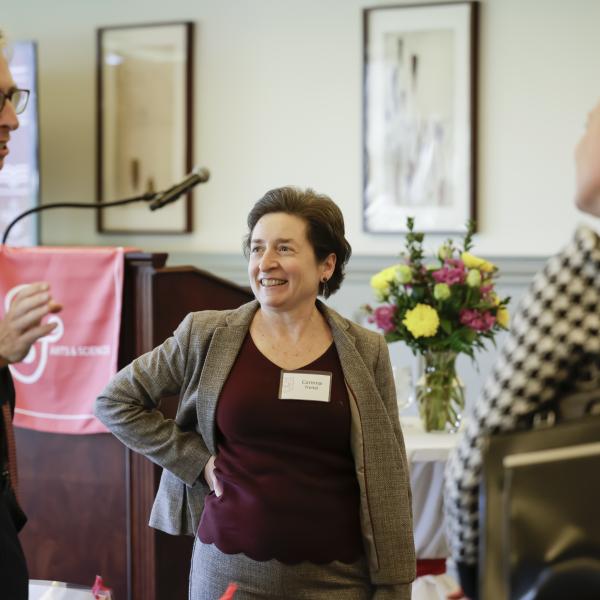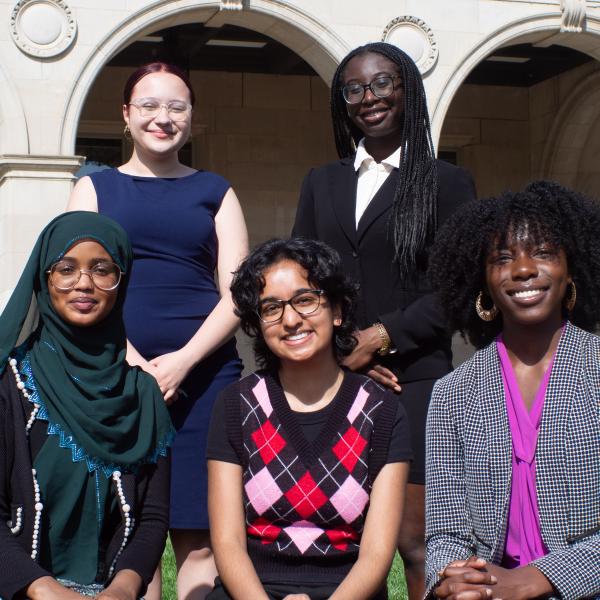Anthropology
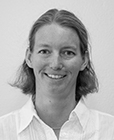
Sarah Baitzel, PhD, joins the anthropology department as assistant professor. Baitzel specializes in mortuary archaeology, the Andes, social organization, ritual, and complex societies. Her dissertation research, funded by Fulbright-Hays and National Science Foundation grants, incorporated information about funerary dress, offerings, and biological markers from over 200 burials affiliated with the Tiwanaku culture (AD 500-1000). Additional research projects in the Moquegua Valley of Southern Peru and elsewhere in the Andes, where Baitzel has worked for the past decade, include collaborative efforts with the Museo Contisuyo (Moquegua) in conservation and analysis of archaeological sites and artifacts. She earned her doctorate from the University of California, San Diego.
Chemistry
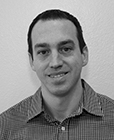 Jonathan Barnes, PhD, joins the chemistry department as assistant professor. Most recently, Barnes served as a Howard Hughes Medical Institute Postdoctoral Fellow at the Massachusetts Institute of Technology. He previously earned his doctorate as a Department of Defense NDSEG Fellow and International Institute of Nanotechnology Ryan Fellow at Northwestern University, where he was awarded the chemistry department’s award for Excellence in Graduate Research. Additionally, he was awarded the 2015 IUPAC-SOLVAY International Award for Young Chemists. Barnes’ previous research activities include synthetic polymer methodology, drug delivery, nanotechnology, and supramolecular chemistry. His research group at Washington University will focus on the design, synthesis, and application of combination antimicrobial polymer-based platforms, stimuli-responsive materials, and porous crystalline materials, and will aim to develop new polymer methodologies and functional architectures.
Jonathan Barnes, PhD, joins the chemistry department as assistant professor. Most recently, Barnes served as a Howard Hughes Medical Institute Postdoctoral Fellow at the Massachusetts Institute of Technology. He previously earned his doctorate as a Department of Defense NDSEG Fellow and International Institute of Nanotechnology Ryan Fellow at Northwestern University, where he was awarded the chemistry department’s award for Excellence in Graduate Research. Additionally, he was awarded the 2015 IUPAC-SOLVAY International Award for Young Chemists. Barnes’ previous research activities include synthetic polymer methodology, drug delivery, nanotechnology, and supramolecular chemistry. His research group at Washington University will focus on the design, synthesis, and application of combination antimicrobial polymer-based platforms, stimuli-responsive materials, and porous crystalline materials, and will aim to develop new polymer methodologies and functional architectures.
Classics
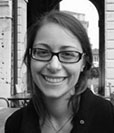 Zoe Stamatopoulou, PhD, joins the classics department as associate professor. Stamatopoulou earned her doctorate from the University of Virginia. She has research interests in Archaic and Classical Greek poetry (epic, lyric, and drama), didactic poetry, ancient biographical traditions, imperial Greek literature, and reception studies. She is the author of Hesiod and Classical Greek Poetry: Reception and Transformation in the Fifth Century BCE (forthcoming in 2016, Cambridge University Press) and of numerous articles and book chapters on Homer, Hesiod, Pindar, Euripides, and Plutarch. She most recently served as the Tombros Early Career Professor of Classical Studies at Pennsylvania State University.
Zoe Stamatopoulou, PhD, joins the classics department as associate professor. Stamatopoulou earned her doctorate from the University of Virginia. She has research interests in Archaic and Classical Greek poetry (epic, lyric, and drama), didactic poetry, ancient biographical traditions, imperial Greek literature, and reception studies. She is the author of Hesiod and Classical Greek Poetry: Reception and Transformation in the Fifth Century BCE (forthcoming in 2016, Cambridge University Press) and of numerous articles and book chapters on Homer, Hesiod, Pindar, Euripides, and Plutarch. She most recently served as the Tombros Early Career Professor of Classical Studies at Pennsylvania State University.
Economics

Ian Fillmore, PhD, joins the economics department as assistant professor. Fillmore earned his doctorate in economics from the University of Chicago in 2015 and most recently served as a postdoctoral fellow at the W.E. Upjohn Institute for Employment Research. His primary fields are labor economics, industrial organization, and the economics of education. In a recent paper, he used data from high-school Advanced Placement (AP) exams to identify the impact of rest time between multiple cognitively challenging tasks. Other recent research topics include price discrimination at U.S. colleges and long-run trends in college attendance and completion.
English

Anupam Basu, PhD, joins the English department as assistant professor. Basu joins the English faculty after having served as Washington University’s Mark Steinberg Early Career Fellow in Digital Humanities. He works at the intersection of literature and big data, drawing on emerging computational techniques like natural language processing and machine-learning to make vast digital archives of early modern print more tractable for computational analysis. Basu’s current research on crime and social change in Tudor and Stuart literature explores the popular representation of criminality, poverty, and vagrancy in the period.
Earth and Planetary Sciences
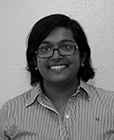 Rita Parai, PhD, joins the earth and planetary sciences department as assistant professor of geochemistry. In her research, Parai uses precise measurements of isotopes in rocks to better understand the formation and evolution of planetary bodies. Her noble gas laboratory will address questions regarding early Earth environments, lunar formation, the origin and evolution of Earth’s volatile budgets, chemical cycling between deep Earth and surface reservoirs, the nature of mantle heterogeneities, and chemical constraints on geodynamics. Parai earned her doctorate from Harvard University in 2014. She most recently served as the Carnegie Postdoctoral Fellow at the Carnegie Institution for Science.
Rita Parai, PhD, joins the earth and planetary sciences department as assistant professor of geochemistry. In her research, Parai uses precise measurements of isotopes in rocks to better understand the formation and evolution of planetary bodies. Her noble gas laboratory will address questions regarding early Earth environments, lunar formation, the origin and evolution of Earth’s volatile budgets, chemical cycling between deep Earth and surface reservoirs, the nature of mantle heterogeneities, and chemical constraints on geodynamics. Parai earned her doctorate from Harvard University in 2014. She most recently served as the Carnegie Postdoctoral Fellow at the Carnegie Institution for Science.

Kun Wang, PhD, joins the earth and planetary sciences department as assistant professor of geochemistry. After completing his doctorate at Washington University in 2013, Wang served as the Origins of Life Initiative Postdoctoral Fellow at Harvard University. In his research, he applies non-traditional isotope tools to samples (such as plants, water, terrestrial and lunar rocks, meteorites from Mars, and asteroids) in order to better understand the physical and chemical conditions that eventually led to the origin of life on the Earth. His laboratory studies the origin of our solar system, planetary formations, core-mantle differentiation, and crustal evolution.
History
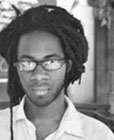 Douglas Flowe, PhD, joins the history department as assistant professor. Flowe most recently served as the American Culture Studies Postdoctoral Fellow in Inequality and Identity at Washington University after receiving his PhD at the University of Rochester in 2014. His work is primarily concerned with criminality, racial violence, leisure, vice, and popular culture, and how these all connect to differing racial perceptions of black masculinity, or contribute to notions of black identity. His current book project explores illegality and violence in the lives of black migrant men in New York City at the turn of the twentieth century.
Douglas Flowe, PhD, joins the history department as assistant professor. Flowe most recently served as the American Culture Studies Postdoctoral Fellow in Inequality and Identity at Washington University after receiving his PhD at the University of Rochester in 2014. His work is primarily concerned with criminality, racial violence, leisure, vice, and popular culture, and how these all connect to differing racial perceptions of black masculinity, or contribute to notions of black identity. His current book project explores illegality and violence in the lives of black migrant men in New York City at the turn of the twentieth century.
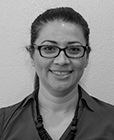
Diana Montaño, PhD, joins the history department as assistant professor. Montaño’s teaching and research interests broadly include the construction of modern Latin American societies, with a focus on technology and its relationship to nationalism, everyday life, and domesticity. Her current manuscript project, entitled Electrifying Mexico: Cultural responses to a new technology, 1880s-1960s, looks at how ordinary citizens used electricity, both symbolically and physically, in the construction of a modern nation. She earned her doctorate from the University of Arizona and most recently served as a postdoctoral fellow in the history department at Washington University.
 Christina Ramos, PhD, joins the history department as assistant professor. Ramos specializes in the history of medicine in the early modern world, with a focus on colonial Latin America. She is particularly interested in the complex intermingling of medical, religious, and indigenous cultures; the history of colonial hospitals and the provisioning of public health; the Inquisition as an archive for medical history; and the daily experience and treatment of sickness and disease. Her first book project—titled Bedlam in the New World: Madness, Colonialism, and a Mexican Madhouse—is a history of madness in colonial Mexico. Ramos earned her doctorate from Harvard University.
Christina Ramos, PhD, joins the history department as assistant professor. Ramos specializes in the history of medicine in the early modern world, with a focus on colonial Latin America. She is particularly interested in the complex intermingling of medical, religious, and indigenous cultures; the history of colonial hospitals and the provisioning of public health; the Inquisition as an archive for medical history; and the daily experience and treatment of sickness and disease. Her first book project—titled Bedlam in the New World: Madness, Colonialism, and a Mexican Madhouse—is a history of madness in colonial Mexico. Ramos earned her doctorate from Harvard University.
Music
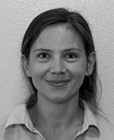
Clare Bokulich, PhD, joins the music department as assistant professor. Bokulich’s research focuses on the interconnectivity of music genres in the fifteenth century, particularly the ways in which musicians systematically crossed boundaries by quoting secular songs in masses, subsuming liturgical chant into the context of forme fixe chansons, and organizing motets into substitute mass cycles. She also interested in the expressive potential of silence and has presented work on the use of silence in Wagner's Parsifal and Miles Davis’s canonic album Kind of Blue. Bokulich earned her doctorate in musicology from Stanford University in 2016 and has lectured at the University of California, Davis.
Performing Arts
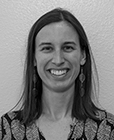
Joanna Dee Das, PhD, joins the performing arts department as assistant professor. Das earned her doctorate in history from Columbia University in 2014 and went on to serve as a postdoctoral fellow at Stanford University and Williams College. Her research interests include dance in the African diaspora, musical theater dance, the politics of performance in the twentieth century, and urban cultural policy. Her book manuscript, Katherine Dunham: Dance and the African Diaspora, is forthcoming from Oxford University Press in 2017. A former professional dancer and choreographer, Das has performed at Dance Theater Workshop (now NYLA), the Cunningham Studio, WAXWorks, and DanceNow/NYC.
Philosophy

Jonathan Kvanvig, PhD, joins the philosophy department as professor. Formerly distinguished professor of philosophy at Baylor University, Kvanvig specializes in metaphysics and epistemology, philosophy of religion, and philosophy of logic and language. He has authored eight books, served as editor for the 7-volume Oxford Studies in Philosophy of Religion, and written dozens of articles. His most recent book, Rationality and Reflection (Oxford University Press, 2014), presents a conception of rationality arising out of the egocentric predicament concerning what to do and what to believe. Kvanvig’s current projects include a book on faith and humility and another on the significance and limitations of philosophical skepticism. He earned his doctorate from the University of Notre Dame in 1982.
Physics
 Bhupal Dev, PhD, joins the physics department as assistant professor. Dev's research interests include elementary particle physics, particle astrophysics, cosmology, and theoretical physics. His main research goal is to understand the new physics beyond the Standard Model that can explain the outstanding puzzles of our universe, such as the matter-antimatter asymmetry, dark matter, neutrino mass and inflation. He earned his doctorate in physics from the University of Maryland, College Park, in 2012, and has served as a Consortium postdoctoral fellow at the University of Manchester, a University Foundation fellow at the Technical University of Munich, and most recently, as a senior postdoctoral fellow at the Max-Planck-Institute for Nuclear Physics in Heidelberg.
Bhupal Dev, PhD, joins the physics department as assistant professor. Dev's research interests include elementary particle physics, particle astrophysics, cosmology, and theoretical physics. His main research goal is to understand the new physics beyond the Standard Model that can explain the outstanding puzzles of our universe, such as the matter-antimatter asymmetry, dark matter, neutrino mass and inflation. He earned his doctorate in physics from the University of Maryland, College Park, in 2012, and has served as a Consortium postdoctoral fellow at the University of Manchester, a University Foundation fellow at the Technical University of Munich, and most recently, as a senior postdoctoral fellow at the Max-Planck-Institute for Nuclear Physics in Heidelberg.
Political Science
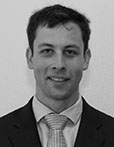 Michael Bechtel, PhD, joins the political science department as associate professor. Bechtel’s research explores how countries can design policies to successfully address international economic and environmental problems. Current projects examine mass support for global climate cooperation, the politics of natural disasters, and policy responses to economic crises. He has authored and co-authored two books, and his work has been published in American Journal of Political Science, Proceedings of the National Academy of Sciences, and elsewhere. He has been a visiting researcher at New York University, Stanford University, Yale University, and elsewhere, and he currently serves as a research fellow at the Swiss Institute for International Economics and Applied Economic Research.
Michael Bechtel, PhD, joins the political science department as associate professor. Bechtel’s research explores how countries can design policies to successfully address international economic and environmental problems. Current projects examine mass support for global climate cooperation, the politics of natural disasters, and policy responses to economic crises. He has authored and co-authored two books, and his work has been published in American Journal of Political Science, Proceedings of the National Academy of Sciences, and elsewhere. He has been a visiting researcher at New York University, Stanford University, Yale University, and elsewhere, and he currently serves as a research fellow at the Swiss Institute for International Economics and Applied Economic Research.
 Keith Schnakenberg, PhD, joins the political science department as assistant professor. Schnakenberg earned his doctorate from Washington University in 2014 and has since served as assistant professor at the University of Kentucky’s Martin School of Public Policy and Administration. His research uses game theoretic models to study questions related to lobbying, campaign finance policy, and legislative politics.
Keith Schnakenberg, PhD, joins the political science department as assistant professor. Schnakenberg earned his doctorate from Washington University in 2014 and has since served as assistant professor at the University of Kentucky’s Martin School of Public Policy and Administration. His research uses game theoretic models to study questions related to lobbying, campaign finance policy, and legislative politics.
Psychological & Brain Sciences
 Patrick Hill, PhD, joins the psychological and brain sciences department as assistant professor. Hill’s research strives to address three important areas for understanding health and wellbeing across the lifespan. First, what is the role of personality and individual differences in predicting health outcomes? Second, what are the benefits associated with presumptively moral or pro-social personality characteristics? And third, how do people find a purpose or direction to their lives? Hill examined such questions as the faculty investigator for the PATH (Purpose, Aging, Traits, and Health) Lab at Carleton University in Ottawa, Canada. He earned his doctorate from the University of Notre Dame.
Patrick Hill, PhD, joins the psychological and brain sciences department as assistant professor. Hill’s research strives to address three important areas for understanding health and wellbeing across the lifespan. First, what is the role of personality and individual differences in predicting health outcomes? Second, what are the benefits associated with presumptively moral or pro-social personality characteristics? And third, how do people find a purpose or direction to their lives? Hill examined such questions as the faculty investigator for the PATH (Purpose, Aging, Traits, and Health) Lab at Carleton University in Ottawa, Canada. He earned his doctorate from the University of Notre Dame.
 Kristin Van Engen, PhD, joins the psychological and brain sciences department as assistant professor. Van Engen earned her doctorate from the Department of Linguistics at Northwestern University in 2010, and she has most recently served as a postdoctoral teaching fellow in linguistics at Washington University. With support from the National Institutes of Health, she currently studies the neurocognitive basis of listening effort. Past projects have focused on linguistic factors relevant to understanding speech in noise. She has published articles in such journals as Language and Cognitive Processes and the Journal of Speech, Language, and Hearing Research.
Kristin Van Engen, PhD, joins the psychological and brain sciences department as assistant professor. Van Engen earned her doctorate from the Department of Linguistics at Northwestern University in 2010, and she has most recently served as a postdoctoral teaching fellow in linguistics at Washington University. With support from the National Institutes of Health, she currently studies the neurocognitive basis of listening effort. Past projects have focused on linguistic factors relevant to understanding speech in noise. She has published articles in such journals as Language and Cognitive Processes and the Journal of Speech, Language, and Hearing Research.
Sociology

Caitlyn Collins, PhD, joins the sociology department as assistant professor. Collins studies gender, work, and family dynamics cross-nationally, and is interested in whether/how policy can help reduce gender, race, and class inequalities. Her current research is a comparative interview study of 135 middle-income working mothers in four countries offering distinct policy approaches to reconciling work-family conflict: Germany, Sweden, Italy, and the United States. With support from the National Science Foundation and several other organizations, Collins conducted fieldwork throughout Europe for the project. She earned her doctorate from the University of Texas at Austin.
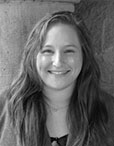 Ariela Schachter, PhD, joins the sociology department as assistant professor. Schachter completed her doctorate at Stanford University, where she was a National Science Foundation Graduate Research Fellow. Her research uses advanced quantitative and experimental methods to understand how immigration is reshaping race relations and inequality in the United States. Her dissertation broke from conventional scholarship on immigrant assimilation by using a combination of original survey experiments and longitudinal survey data to systematically explore how native-born Americans relate to immigrants. Her work has been published in the journals Social Forces and Social Problems,among others, and is forthcoming at American Sociological Review.
Ariela Schachter, PhD, joins the sociology department as assistant professor. Schachter completed her doctorate at Stanford University, where she was a National Science Foundation Graduate Research Fellow. Her research uses advanced quantitative and experimental methods to understand how immigration is reshaping race relations and inequality in the United States. Her dissertation broke from conventional scholarship on immigrant assimilation by using a combination of original survey experiments and longitudinal survey data to systematically explore how native-born Americans relate to immigrants. Her work has been published in the journals Social Forces and Social Problems,among others, and is forthcoming at American Sociological Review.
